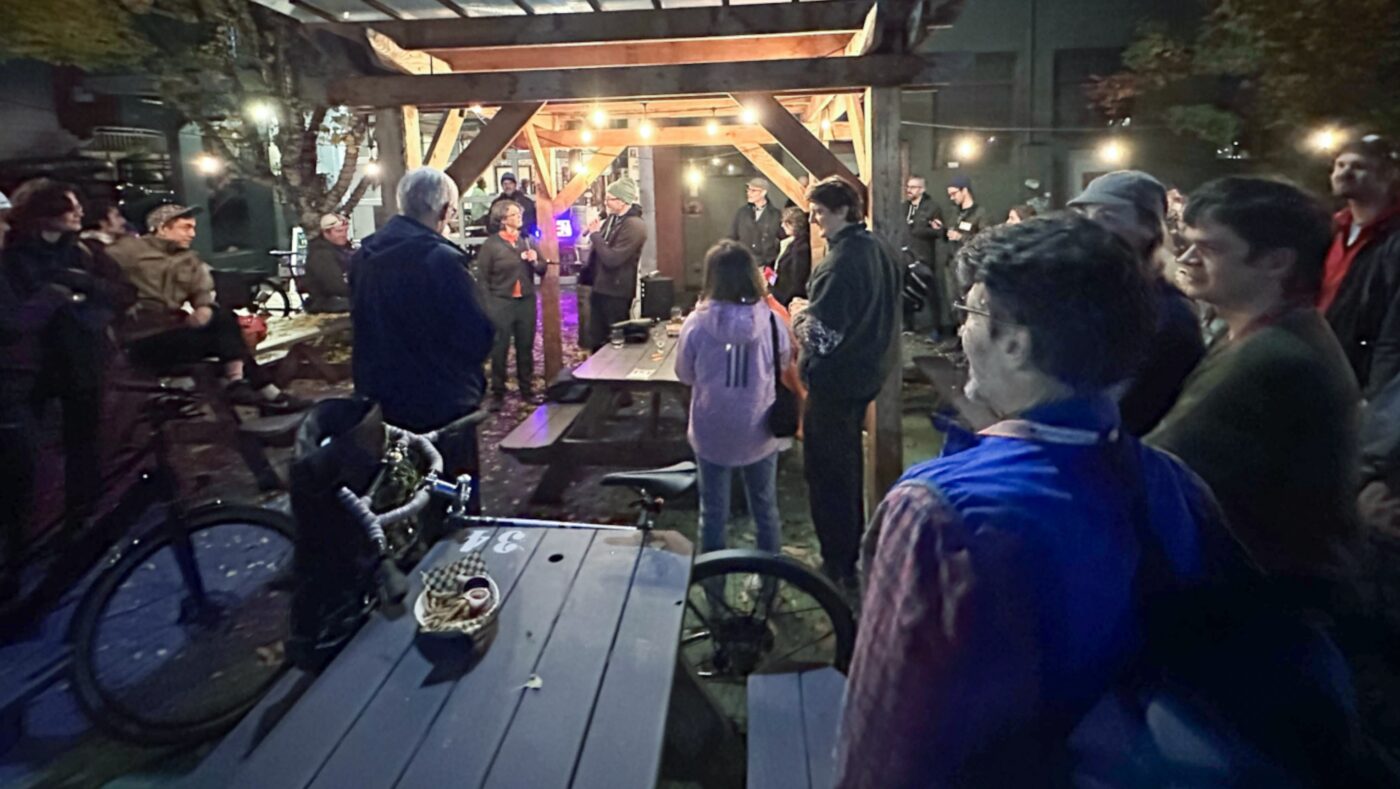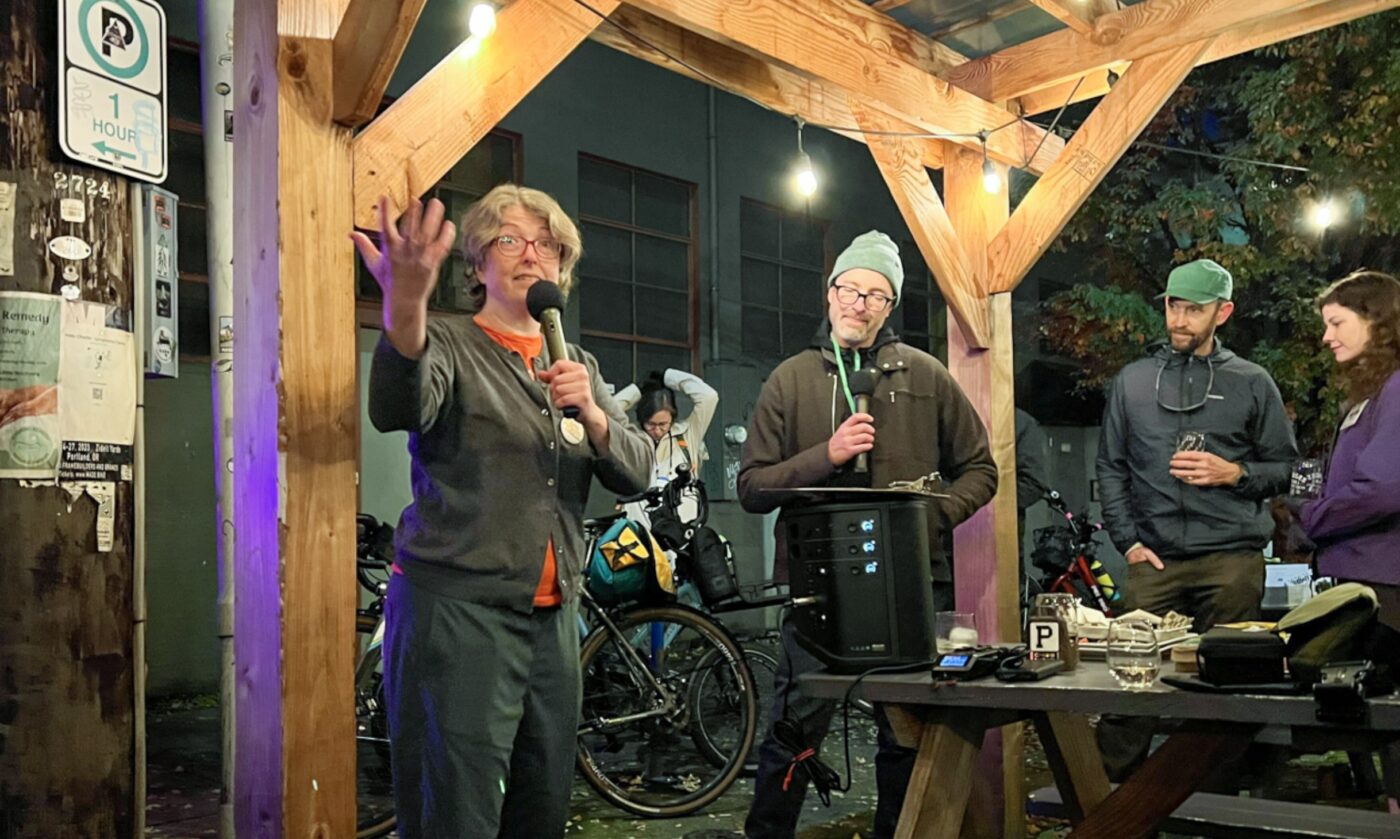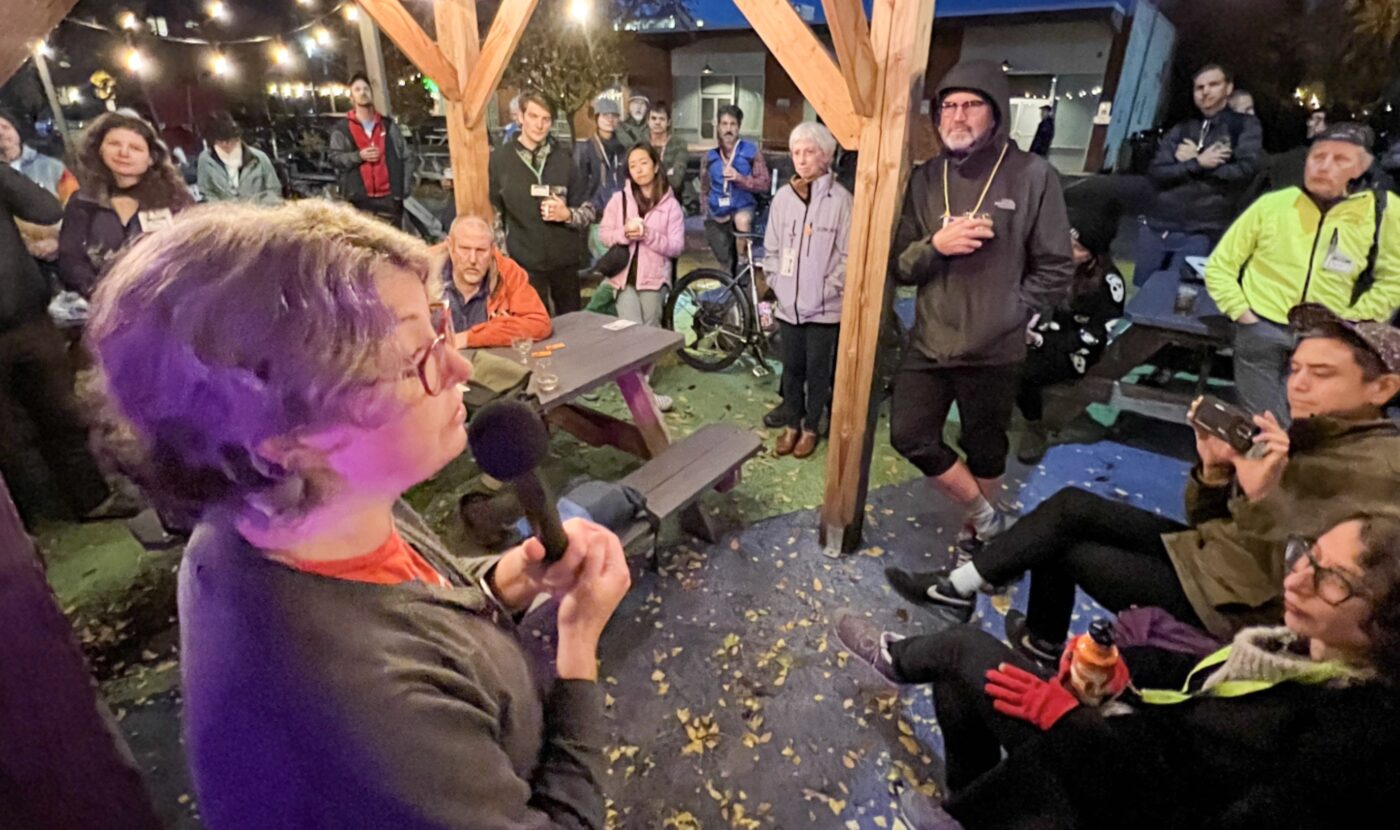If you didn’t make it out to Bike Happy Hour on Wednesday night, you missed something special. A few dozen Portlanders sat and stood in the crisp, cold night in a plaza on a public street (thanks PBOT!) to take part in an interview with a candidate for local elected office.
I planned to interview Portland City Council Candidate Steph Routh inside Ankeny Tap & Table, but it was such a nice night that everyone was already camped out in the plaza. So we decided to just go with it and I brought the speaker and mic outside, set it on a wooden picnic table, and went for it. We talked for about 35 minutes and then took questions from the audience. It was delightful and I think you’ll really appreciate learning more about Steph and her thoughtful approach to important issues.



Steph, who was born in Parkrose and now lives in Lents, has been a part of our cycling and transportation advocacy community for many years. In 2006 I photographed her bike wedding (yes she married her bike, she wore a veil and kissed the bike and everything) and have followed her ever since. Since then she’s been a leader in our community. Steph was the first-ever executive director of Oregon Walks (where she led the org on an office move by foot!), she worked in communications for Community Cycling Center, Sightline, and the Portland Bureau of Transportation. In 2013 she authored a book on how to move by bike (and has taken part in over 80 bike moves). Steph is also an adjunct professor at the PSU School of Urban Planning and was part of the strategy team that helped win Portland’s local gas tax increase campaign in 2016. In 2017 she interviewed women for a series on BikePortland. And since 2019 she’s served as a member of the Portland Planning Commission (service she called a “love note to my city”).
Asked by someone Wednesday night why she’d never run for office before, Steph said she always assumed being a planning commissioner (a position she “begged to be on”) would be her highest calling. But then she saw that major policies she worked to pass hit road blocks at city hall. “And then when I saw the council district lines drawn and I saw that, on Day One of the new administration, east Portland would have more representation than in the cumulative history of Portland City Council — that was just so meaningful. And I couldn’t say no.”
Here are a few other notable exchanges from our interview:
What can you bring to council so that we make sure great programs and policies [like bike infrastructure plans, Portland Street Response, etc…] aren’t diluted or dismantled?
“I think it’s important to remember I am running for city council because I care and I want to be part of a solution. No one candidate, no one politician is going to solve our problems. And government cannot be the hero of our story. Communities are the heroes of our story. And it has to be. The town is the hero. And the goal and the role of government and I think of politicians, is to create the conditions where communities can thrive and community-based solutions can find purchase and endure.”
I’ve seen activists gain power and office, then become silent and a part of the machine. Are you confident that you can be an elected official in a position of power and still sort of like, keep it real?
“You just described all of my nightmares!… I’ve also started to try to build a ‘Team of Rivals,’ if you will. People who are naysayers, people that I have disagreed with; because I think it’s important to have people who can call me to account… I think it’s important to seek the honorable opposition.”
On her opposition to federal funding for bike share in 2011 because it would only serve the central city, and the argument bike share advocates made that downtown has some of the lowest income census tracts in the city:
“I think that we were right on this, and I am very glad that we got bike share, I love it. But being near poor people, is not the same as being for poor people, there is a difference… We don’t get to say that something that excludes people who are unbanked, at that time, is a social justice project. We just don’t get to say that.”
In response to an audience question about how to reach our cycling mode share goals:
“Making the case for cycling is a lot easier when you have places to cycle to. And I think as the former executive director of Oregon walks, I think walkability and roll-ability is the elegant solution to so many of our issues and makes the abundant case for cycling clear. And I think there’s that triptych of transit and walkability and cycling, and we need to do all three. I think we need to really look at how transit is funded and how, how we’re working on operations, because transit is the backbone to a land-use that makes both cycling and walking inevitable.”
I hope you listen to the full interview. Steph is someone who gives me hope for the future of Portland and I always learn something when I talk with her. I think you will too.
Listen in the player above or wherever you get your podcasts. You can read a full transcript below or download it here.


